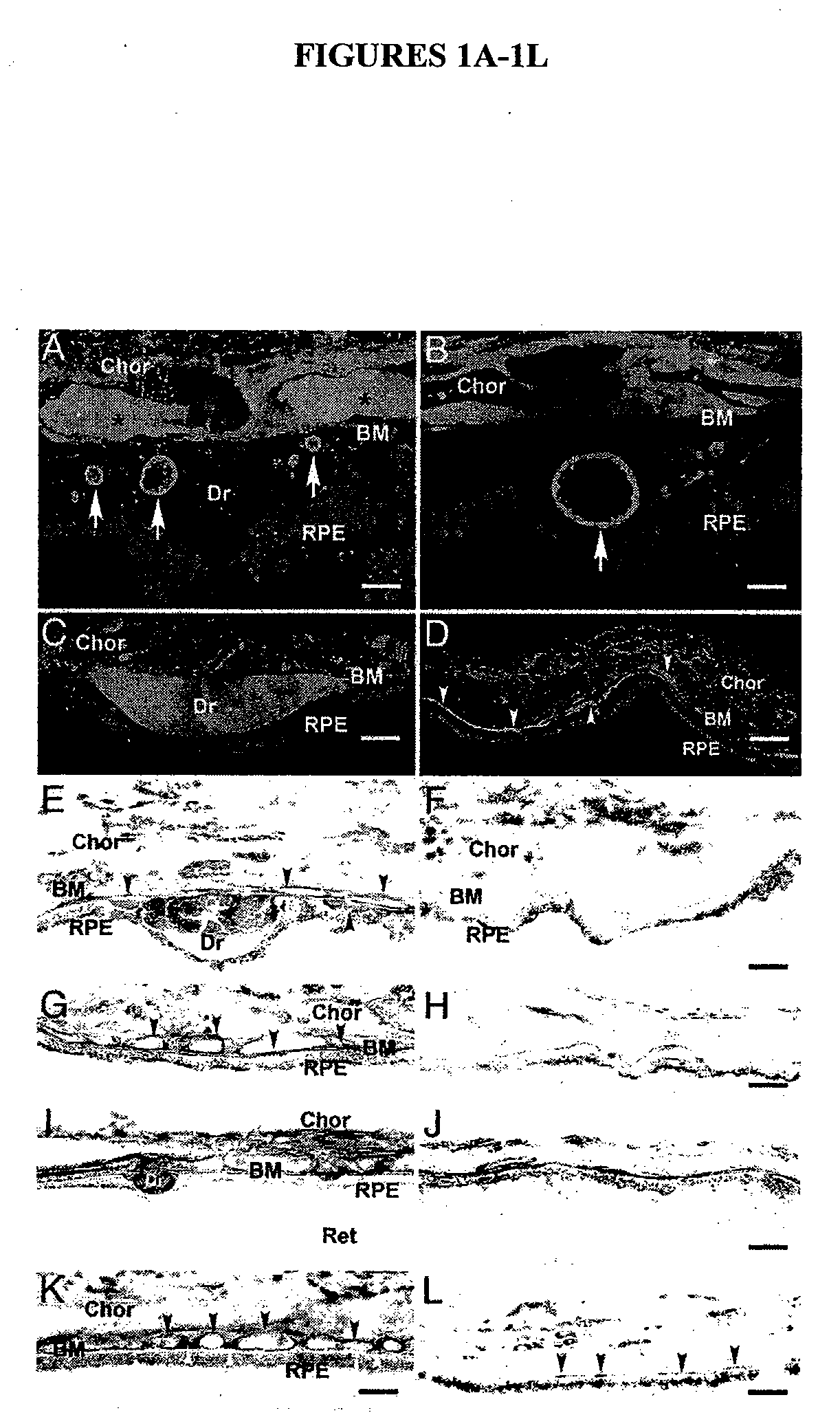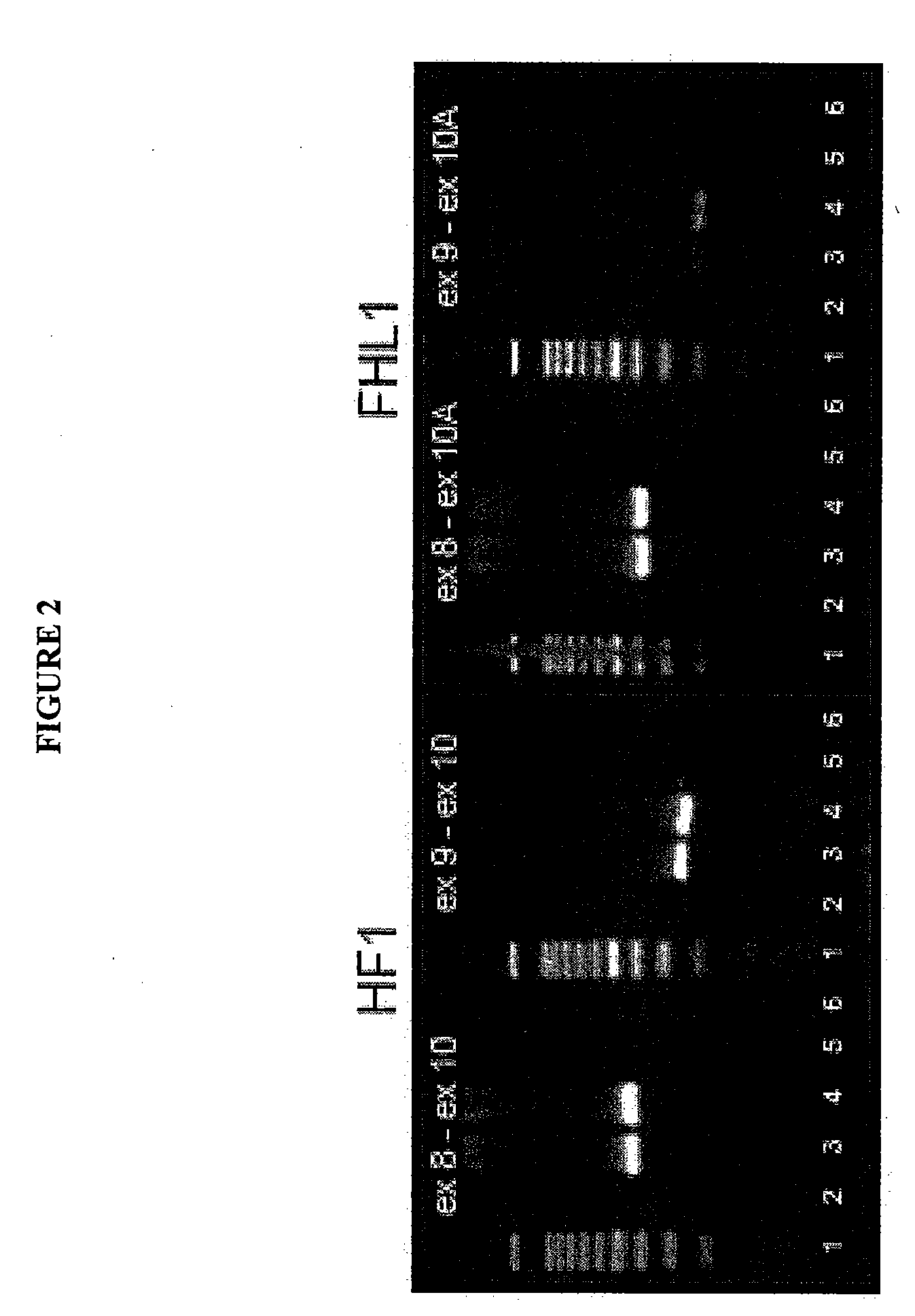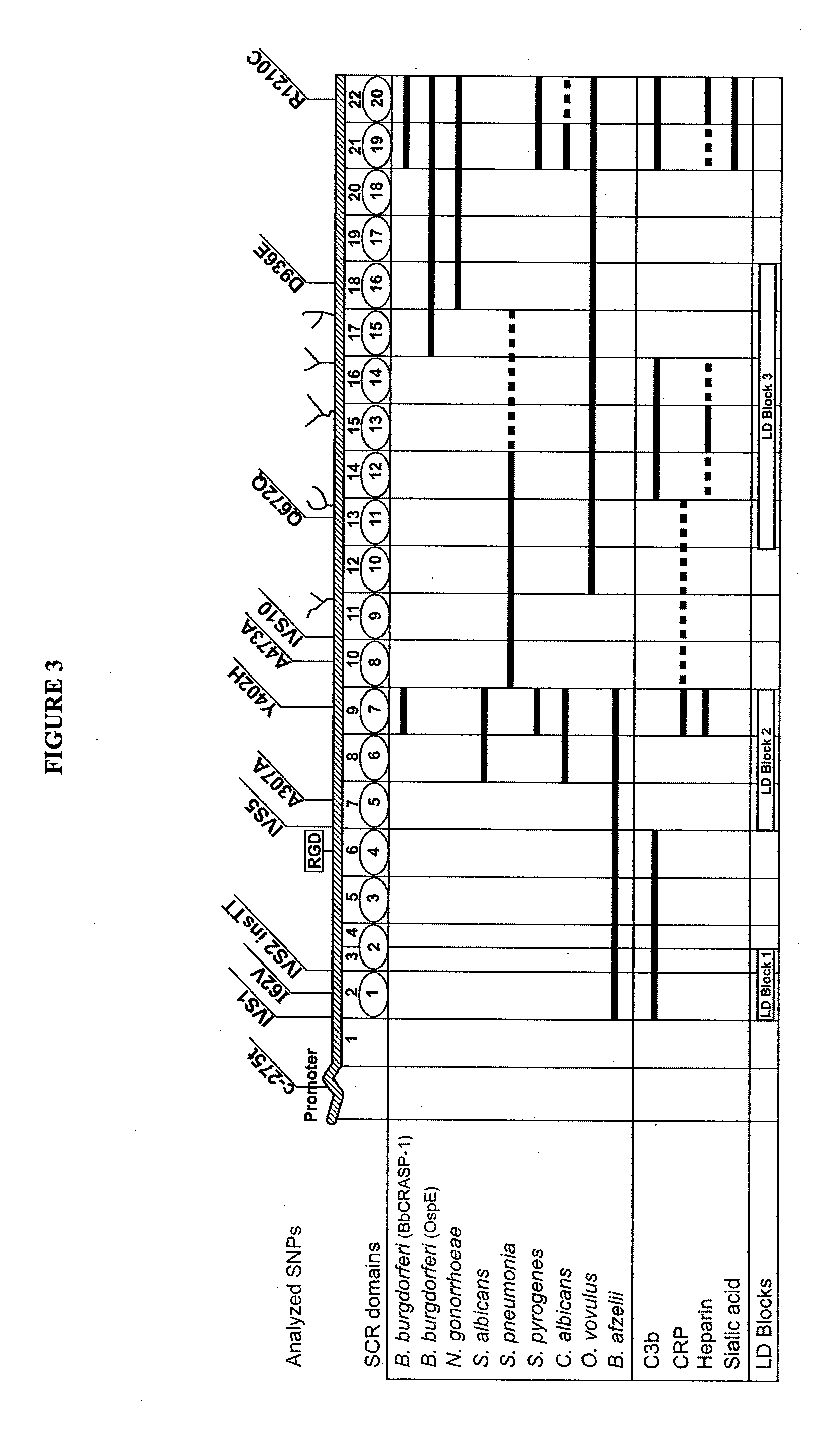Therapeutic Compositions for Age-Related Macular Degeneration
a technology of compositions and therapeutic compositions, applied in the field of therapeutic compositions for age-related macular degeneration, can solve the problem of limited insight into amd genetics
- Summary
- Abstract
- Description
- Claims
- Application Information
AI Technical Summary
Benefits of technology
Problems solved by technology
Method used
Image
Examples
example 1
Common Haplotype in the Factor H Gene (HF1 / CFH) Predisposes Individuals to Age-Related Macular Degeneration
[0332]Age-related macular degeneration (AMD) is the most frequent cause of irreversible blindness in the elderly in developed countries, affecting more than 50 million individuals worldwide. Our previous studies implicated activation of the alternative complement pathway in the formation of ocular drusen, the hallmark lesion of AMD. We have also shown that macular drusen in AMD patients are indistinguishable from those that form at an early age in individuals with membranoproliferative glomerulonephritis type 2 (MPGNII), a disease characterized by uncontrolled activation of the alternative pathway of the complement cascade. Here we show that Factor H protein (HF1), the major inhibitor of the alternative complement pathway, accumulates within drusen, and is synthesized locally by the retinal pigment epithelium. Previous linkage analyses identified chromosome 1q25-32, which harbo...
example 2
Variations in the Complement Regulatory Genes Factor H(CFH) and Factor H Related 5 (CFHR5) are Associated with Membranoproliferative Glomerulonephritis Type II (Dense Deposit Disease)
Introduction
[0376]The membranoproliferative glomerulonephritides are diseases of diverse and often obscure etiology that account for 4% and 7% of primary renal causes of nephrotic syndrome in children and adults, respectively (Orth et al.; 1998). Based on renal immunopathology and ultrastructural studies, three subtypes are recognized. Membranoproliferative glomerulonephritis (MPGN) types I and III are variants of immune complex-mediated disease; MPGNII, in contrast, has no known association with immune complexes (Appel et al., 2005).
[0377]MPGNII accounts for less than 20% of cases of MPGN in children and only a fractional percentage of cases in adults (Orth et al., 1998; Habib et al., 1975; Habib et al., 1987). Both sexes are affected equally, with the diagnosis usually made in children between the age...
example 3
Production of Protective Form of Factor H Protein
[0399]An exemplary protective form of human complement factor H(CFH) was prepared based on haplotype H2 (FIG. 5). Briefly, RNA was isolated from ocular tissues (RPE / choroid complexes) of four donors. The RNA was amplified by reverse transcription-polymerase chain reaction using the following primers:
5′-GAAGATTGCAATGAACTTCCTCCAAG-3′[SEQ ID NO:331]5′-AAGTTCTGAATAAAGGTGTGC-3′.[SEQ ID NO:332]
RT-PCR reactions were performed using Superscript III One-Step High Fidelity with Platinum Taq, as described by the manufacturer (Invitrogen, Carlsbad, Calif.). The appropriate sized products (3,769 bp) were excised from agarose gels and isolated using spin columns.
[0400]The PCR products were cloned using the TOPO-TA cloning system, as recommended by the manufacturer (Invitrogen) in the vector pCR2.1-TOPO. The complete genetic sequences of the clones derived from each of the four patients were determined by direct sequencing. The DNA derived from one ...
PUM
 Login to View More
Login to View More Abstract
Description
Claims
Application Information
 Login to View More
Login to View More - R&D
- Intellectual Property
- Life Sciences
- Materials
- Tech Scout
- Unparalleled Data Quality
- Higher Quality Content
- 60% Fewer Hallucinations
Browse by: Latest US Patents, China's latest patents, Technical Efficacy Thesaurus, Application Domain, Technology Topic, Popular Technical Reports.
© 2025 PatSnap. All rights reserved.Legal|Privacy policy|Modern Slavery Act Transparency Statement|Sitemap|About US| Contact US: help@patsnap.com



